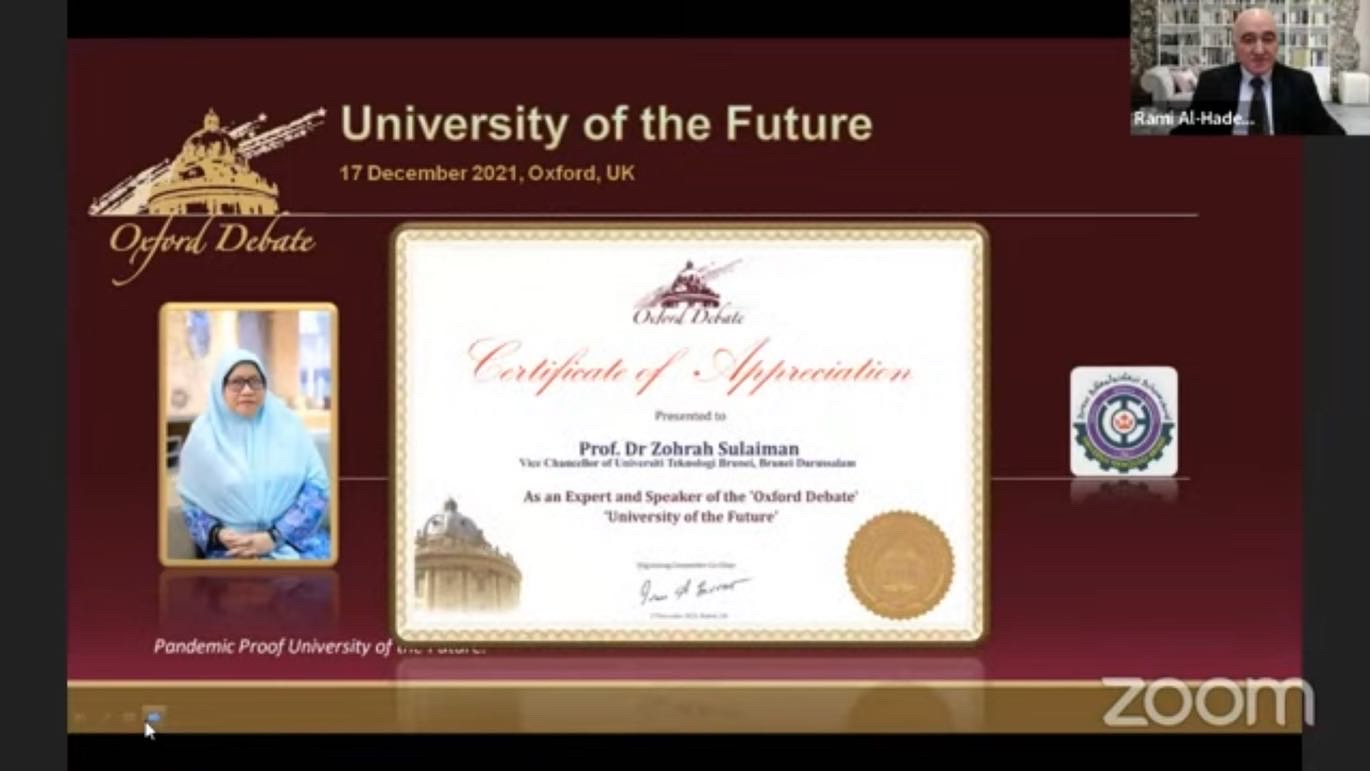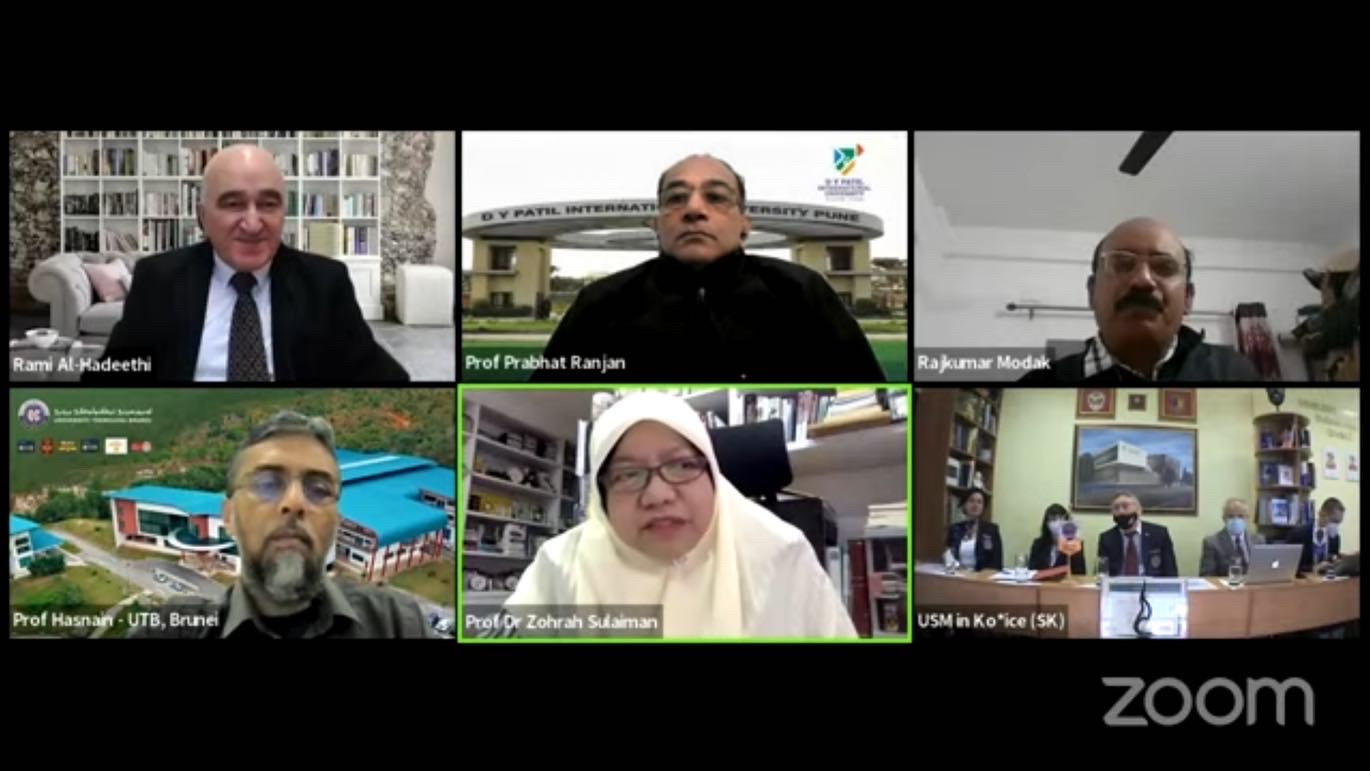In response to the COVID-19 pandemic, the Vice-Chancellor of UTB, Professor Dr. Dayang Hajah Zohrah binti Hj Sulaiman participated at the Oxford Debate to present the outcomes of the pandemic crisis on higher education.
An exclusive event format of the Academic Union Oxford (AU), Oxford Debate is a special partner and discussion platform for regional leaders in higher education, key experts in national and global education. The purpose of the event is to accumulate, keep and popularise different points of view on the future of education and to promote cooperation between educational institutions worldwide.
Themed University of the Future, the debate saw two sessions: Session 1 - ‘Point of view: The concept and aims of the University of the future' and Session 2 - ‘Pandemic outcomes to take forward for higher education'. In Session 2, the Vice-Chancellor delivered a talk entitled 'A Pandemic Proof University of the Future'.
Speaking about the challenges faced during the pandemic, Professor Dr. Dayang Hajah Zohrah mentioned that UTB has been facing disruption in international student mobility and the associated revenue due to the travel restrictions. "This has greatly affected the inbound and outbound student exchanges and admission and therefore, this had allowed the universities to take a step back, rethink and find new ways of catering to the society. The Pandemic Proof University of the Future must retain an open and flexible education," she said.
"The pandemic had driven us to be digital literate, innovative and creative in using technologies effectively and broadened our perspectives and promote new ways of thinking," said the Vice-Chancellor. She stressed that the university had to quickly adapt and make necessary adjustments according to the changes during this period and strategise well to ensure that the university could continue to operate and still produce a high-quality experience for both students and staff.
She also shared that the Brunei Digital Economy Masterplan 2025 was produced to support the objectives of Vision 2035 for a high quality of life, a highly educated and skilled workforce, and a dynamic and sustainable economy. Therefore, it emphasises for Brunei to become a Smart Nation with a digital and future-ready society, vibrant and sustainable economy, and a conducive digital ecosystem. "This digitalisation platform not only offers to nurture talent and promote innovation, but it also enabled industries to transform themselves from the physical world to a digital one, leading to the Fourth Industrial Revolution (IR4.0)," said Professor Dr. Dayang Hajah Zohrah. She added that the IR4 also affects universities and institutions' roles to prepare students and produce the workforce for this new industry and the student experience to match it.
The Vice-Chancellor concluded her speech by stating that the COVID-19 outbreak had an impact on the university, but it also created rooms and opportunities for the university to grow its resilience when faced with a crisis. "Without a swift and clear decision making concerning the changes within the university, it would not have successfully executed the abrupt transformation to digital literacy. This became a moment to redefine the Pandemic Proof University of The Future."
She described that embracing Industrial Revolution 4.0 in Higher Education can be done twofold: using IR4.0 technology to improve University service, increase student experience, and provide relevant IR4.0 key enabling technologies knowledge and skill to support the national vision. "For leaders in Higher Education Institutions to embrace IR4.0, they need to adapt to digital transformational leadership style," added the Vice-Chancellor.




